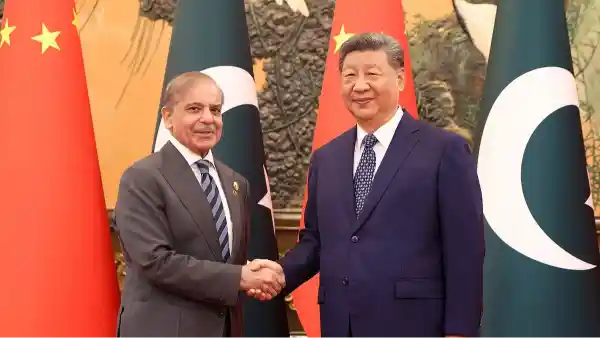Pakistan and China have agreed to create a consortium of bilateral and multilateral partners to fund a USD 7 billion railway project, part of the second phase of the China-Pakistan Economic Corridor (CPEC). The consortium will include China, Pakistan, the Asian Development Bank (ADB), and the Asian Infrastructure Investment Bank (AIIB).

The project involves a 1,700-km railway line from Karachi to Peshawar, and China has also pledged financing for the Karakoram Highway. According to Pakistan’s Planning and Development Minister Ahsan Iqbal, negotiations with all financiers are expected to conclude within a month.
Four-Year Action Plan (2025–29)
Alongside the railway project, Pakistan and China have outlined a four-year action plan (2025–2029) aimed at strengthening political trust, trade relations, security cooperation, and people-to-people links. The plan emphasizes aligning China’s Belt and Road Initiative (BRI) with Pakistan’s 5Es Framework, supporting both large-scale infrastructure projects and smaller livelihood initiatives, while prioritizing quality development and robust security.
Strategic and Regional Context
The CPEC project, which connects China’s Xinjiang region with Pakistan’s Gwadar port, passes through Pakistan-occupied Kashmir (PoK). India opposes the corridor due to its route through PoK.
The CPEC remains a flagship project under China’s Belt and Road Initiative, a global infrastructure strategy intended to expand Beijing’s influence through Chinese-funded projects around the world.
Looking Ahead
The second phase of CPEC marks a continuation of deepening economic and strategic ties between Pakistan and China. With the $7 billion railway project and the broader four-year plan, both countries aim to enhance connectivity, trade, and cooperation across multiple sectors.
